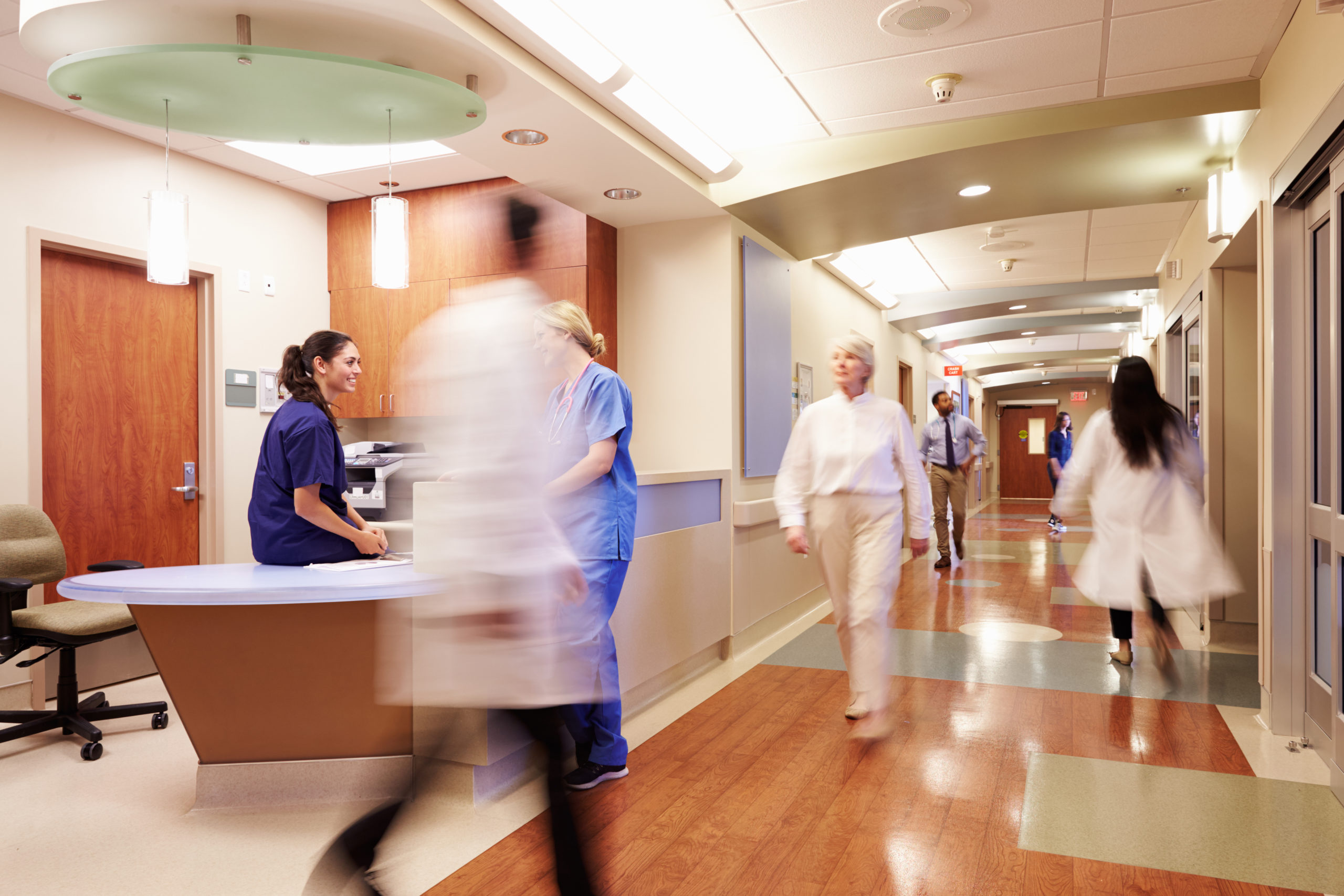

Blog

Holding the line
Wednesday April 29, 2020
Our latest edition of Medicus was dedicated to those extraordinary doctors who willingly put themselves at risk to serve the health needs of our community at a time when we didn’t know the extent of the powers of COVID-19, and who selflessly looked after the health of their fellow West Australians. It reflects their contribution, their courage, and their devotion to serving the community.
Medicus, over the last few weeks has sought the experiences of doctors – in their own words – of what the fight was like as they worked often incredible hours, in the early days, without knowing the full details of the virus, not just in large metropolitan hospitals, but in regional healthcare services. You can read some of these experiences below:
This is a marathon, pace yourself
Dr Peter Allely, Director of Emergency Medicine, Sir Charles Gairdner Hospital
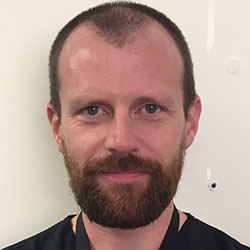 How am I coping? I’m exhausted. Most emergency physicians aren’t sleeping much at the moment. Worldwide ED presentation numbers are down 40-50 per cent but the amount of preparation and system redesign we’ve had to do in such a short timeframe has led to a feeling of being on a war footing with the busiest few weeks of any of our professional lives. On the plus side, I’ve never before experienced so much collegiality, collaboration and innovation.My primary concern is staff safety. The mantra of ‘There is no emergency in a pandemic, put on your PPE first’ has been doing the rounds via a Reddit post from the Ebola outbreak and has been a real focusing point for our staff.
How am I coping? I’m exhausted. Most emergency physicians aren’t sleeping much at the moment. Worldwide ED presentation numbers are down 40-50 per cent but the amount of preparation and system redesign we’ve had to do in such a short timeframe has led to a feeling of being on a war footing with the busiest few weeks of any of our professional lives. On the plus side, I’ve never before experienced so much collegiality, collaboration and innovation.My primary concern is staff safety. The mantra of ‘There is no emergency in a pandemic, put on your PPE first’ has been doing the rounds via a Reddit post from the Ebola outbreak and has been a real focusing point for our staff.
In my position as the State ACEM faculty chair, I’m in frequent contact with other states and it’s clear that Western Australia is doing very well on many levels. I was particularly impressed with the Director General’s recent transparency on PPE stocks – staff have felt much more reassured since then.
To the government: kudos for a job well done so far. As is usually the case, our public health colleagues are saving far more lives than us frontline medicos.
To my medical colleagues: This is a marathon. Pace yourself. Work-life balance needs to be maintained especially now before the tsunami hits (if it hits). Be a team player. People are stressed – especially those who carry an extra burden of responsibility. I think we need to go out of our way to be intentionally kind to one another at the moment.
I have been very impressed with the collegiate spirit...
Dr Omar Khorshid, Lead Surgeon, HOD Orthopaedic Surgery, Fremantle Hospital Managing Partner, Coastal Orthopaedic Group; AMA (WA) Councillor
 I have never seen change as fast as we have had to deliver across the public and private healthcare sector over the last few weeks. Since 23 March, my public and private orthopaedic units have had to completely transform the way we do business in almost every way.
I have never seen change as fast as we have had to deliver across the public and private healthcare sector over the last few weeks. Since 23 March, my public and private orthopaedic units have had to completely transform the way we do business in almost every way.
At the Fiona Stanley Fremantle Hospitals Group (FSFHG), we moved quickly to largely suspend our elective orthopaedic surgery service whilst moving most of the trauma surgery from Fiona Stanley to Fremantle in order to create space at the tertiary centre. We have rapidly changed clinical meetings and handovers to video-conferencing and have reallocated staff to meet projected demands in a very uncertain environment.
Private surgical practice has been hit very hard by the restriction of Category 2 & 3 surgery and our business is projecting a 90 per cent drop in revenue. This has meant an extraordinary amount of work to preserve cashflow and maintain business continuity during an unprecedented slowdown whilst also implementing, almost across the board, video-conferencing for patient consults and other changes.
I have been very impressed with the collegiate spirit that all our surgeons, staff, patients and other stakeholders have demonstrated even when significantly inconvenienced. Everyone has put up their hand to do their bit in both public and private, and it gives me confidence that we are ready to face the challenges ahead.
My primary concern is for our rural and remote communities
Dr Alison Soerensen, GP & AMA (WA) Councillor
 I grieve what this virus has taken from me. Gone is my inviting office – in its place is duct-taped lines and chairs placed two metres away. Surfaces are bare, there are no toys, no warmth. No more high-fiving two-year-olds, no more snuggling rainbow babies, no more holding hands with my lonely elderly patients as I check their blood pressure. The tea room is quiet. There is a sense of foreboding and shared grief. In the words of my six-year-old, “Coronavirus sucks”.
I grieve what this virus has taken from me. Gone is my inviting office – in its place is duct-taped lines and chairs placed two metres away. Surfaces are bare, there are no toys, no warmth. No more high-fiving two-year-olds, no more snuggling rainbow babies, no more holding hands with my lonely elderly patients as I check their blood pressure. The tea room is quiet. There is a sense of foreboding and shared grief. In the words of my six-year-old, “Coronavirus sucks”.
My primary concern is for our rural and remote communities. I fear our planning is metro-centric and fails to consider how we will support our rural doctors when this virus invades their communities. What personal protective equipment do they have? What contingency planning is in place to evacuate those who are critically unwell? Who gets to decide who gets transferred out and who doesn’t? What happens when a significant proportion of the medical workforce becomes unwell? Who cares for them? Who cares for the community while they are unable to?
Some everyday advice:
- Have a routine.
- Get up and go to bed at roughly the same time each day.
- Eat as well as you can.
- Move your body.
- Practice mindfulness.
- Pick a project. Chip away at it day by day.
- Read.
- Stay connected with your loved ones.
- Reach out to your neighbours. Get each other’s contact details. Look out for each other.
- Focus on the things you can control and let go of the things you can’t.
My primary concern is PPE
Dr Celine Baber, Consultant Anaesthetist, Sir Charles Gairdner Hospital, AMA (WA) Councillor
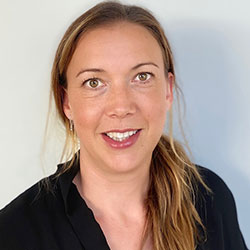 While the current situation is stressful, I am appreciative that we live in Australia, where we have had some warning of what is coming, and this has given us an opportunity to act.
While the current situation is stressful, I am appreciative that we live in Australia, where we have had some warning of what is coming, and this has given us an opportunity to act.
I am also mindful that my personal situation is better than many others. I feel for those who have sick or vulnerable family members, and those who are now unemployed or under financial stress.
My primary concern is personal protective equipment (PPE). As anaesthetists, we perform aerosol-generating procedures on patients that places us at increased risk of contracting and spreading this disease. Ensuring access to PPE to all at-risk healthcare workers should be an absolute priority.
My other main concern is workforce welfare. This is likely to be a long and emotionally exhausting period. Adequate PPE and implementation of clear protocols for management of COVID patients goes a long way in reducing anxiety, but I believe we need to start looking at ways to support the emotional health and wellbeing of staff though this difficult time.
How do we get through each day?
Let’s be kind to ourselves and to others, take time out every day (burnout will not help anyone), and ask for help when we need it.
I have needed a fair bit of support myself in the last few weeks, and the people who have helped me the most are those who have given some kind words of encouragement, or made an effort to say or do something nice. Everyone has their own coping mechanisms, but this has helped for me.
Finally, I would encourage government to be guided by medical experts. I welcomed the recent transparency about stocks of PPE, and hope this honesty continues into the future. And, of course, I would encourage them to continue to engage with the AMA.
Never has RUOK been so critical
Dr Ian Taylor, GP Anaesthetist & Dockers Tragic Geraldton
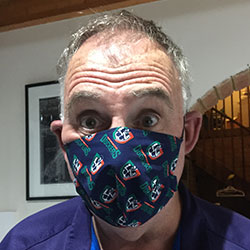 Being potentially front line in a rural hospital is beyond stressful! Our teams at St John’s and Geraldton Hospitals have been outstanding in preparation, helped by one of our specialist anaesthetists teaching us meditation! We know we are in this together and I am lucky to have such solid collegial support.
Being potentially front line in a rural hospital is beyond stressful! Our teams at St John’s and Geraldton Hospitals have been outstanding in preparation, helped by one of our specialist anaesthetists teaching us meditation! We know we are in this together and I am lucky to have such solid collegial support.
Advice? Remember the six “Ps” and be prepared! Keep in touch with colleagues and share ideas. We use WhatsApp and the RADU Facebook pages. Talk to each other, look after each other and share your ideas, worries and concerns. Never has RUOK been so critical. Share the goofy COVID jokes and keep up your Aussie sense of humour.
Keep your family and partners in the loop; they are part of your team and you need them for their support and understanding and your wellbeing.
Hats off to AMA (WA) President Andrew Miller! “Two weeks ahead of the curve” – outstanding leadership! Thank goodness, our Premier has been listening!
And whenever possible: “Stay the f*** home!” We will get through this and footy will return…eventually.
...a time where a calm head and common sense are king
Dr Cassandra Host, Emergency Medicine Physician, Joondalup Health Campus, AMA (WA) Councillor
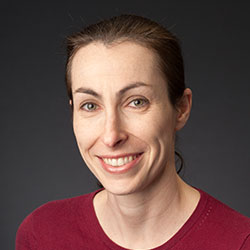 So here I am all donned in PPE, working in the emergency department, while we face another pandemic. Last time it was ‘Flu Stream’ in H1N1; this time it’s called ‘COVID Stream’.
So here I am all donned in PPE, working in the emergency department, while we face another pandemic. Last time it was ‘Flu Stream’ in H1N1; this time it’s called ‘COVID Stream’.
So much has changed, yet much remains the same. In 2009, I was a junior registrar, now I am an experienced consultant. Social media has the world on edge but this is a time where a calm head and common sense are king.
At the time of writing, I am working in the hospital with the largest number of admitted COVID positive patients in Australia. Every day is a challenge as we try to predict the unpredictable and deal with the unease around us. Luckily, the ED thrives in chaos.
I appreciate the hard work and support of all my workmates (medical and otherwise) to continue to provide the best patient care. All the extra hours in preparation – creating guidelines, teaching correct PPE usage, being flexible and adapting to ever-changing work practices and rosters; the list goes on. All of this to make sure patients have gold standard treatment and staff are kept safe.
It’s in the ‘trenches’ that lifelong friendships are formed and I know that we in ED will be a stronger team when this is over.
Now is a time to be inclusive - to unite against the common enemy
Dr Rebecca Wood, Service Registrar, Bunbury Regional Hospital, AMA (WA) Councillor
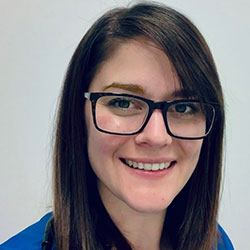 I certainly have fears for family and loved-ones as well as colleagues. Focusing on work and what I can do in this battle against COVID-19 – being proactive – is the best way of coping for me.
I certainly have fears for family and loved-ones as well as colleagues. Focusing on work and what I can do in this battle against COVID-19 – being proactive – is the best way of coping for me.
My main concerns (other than family) centre on protecting our workforce so that we can continue to serve our communities. That protection comes down to provision of PPE, fitting of masks, training in the gear, and open, easy access to testing for healthcare workers.
My message to government is to listen, act and communicate. We need supplies of PPE (and then ongoing supplies). We need formal mask and goggle-fitting. We need a back-up plan for the inevitable failed fits. And we need time to train.
Don’t give us the run-around. Be clear and transparent, and make sure your message is getting to the front line. Give us what we need so we can save lives. Then, and only then, can you save livelihoods.
Something I have found beneficial in our workplace is daily update meetings within our craft group. We meet with our anaesthetic technicians and consultants every afternoon to discuss updates and ask questions.
At a time such as now, stress levels are high and working relationships are on a tightrope. Dr Lucy Hone (Director, New Zealand Institute of Wellbeing & Resilience) gives a great TEDx Talk about three coping strategies for surviving trauma and creating resilience during dark days. I recommend putting “hunting the good” into daily practice.
Now is a time to be inclusive – to unite against the common enemy. Clear communication within the team, building resilience, ensuring physical safety, and training together are all going to be paramount in the weeks before the wave hits us.

